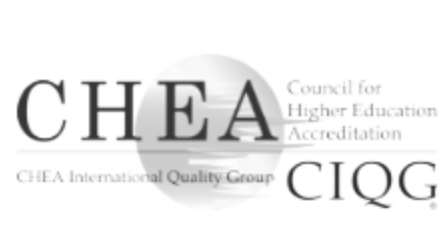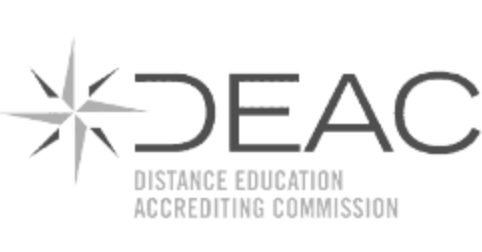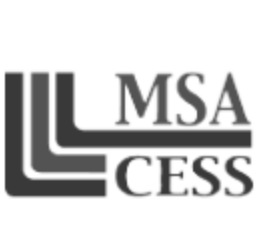How to Tell if Your Child Is Receiving a Quality Education
Accreditation is a process through which high schools prove they meet certain educational standards. Proper accreditation for high school students is of the utmost importance in order to be accepted into post-secondary education or transfer credits to another institution.
As a parent, understanding accreditation is crucial for ensuring that your child is receiving a quality education with the credits they need to graduate and potentially attend an institution of higher education later on. Knowledge of accreditation also helps parents make informed choices about their child’s education and provides reassurance that comes from knowing your child is learning from qualified and capable instructors using quality materials.
When you’re considering options other than a local public school, you may have questions about their accreditation and whether it makes sense to enroll your child in these schools. To help, we’ll be reviewing the accreditation process today, as well as different types of accreditation and how you can tell if a high school is accredited.
What is High School Accreditation?
Accreditation is a process that evaluates schools to see if they meet established standards. It acts as an external validation of the quality and rigor of a school’s curriculum, teaching practices, and student support services.
The accreditation process involves comprehensive evaluations, usually by independent accrediting organizations, to ensure an educational organization is following the proper criteria to provide students with a quality education. The accreditation process often includes an internal review by the school, a site visit by the accrediting body, and ongoing monitoring to ensure continuous improvement and upholding of standards.
Types of High School Accreditation
The types of accreditation a school can receive are usually categorized by geographic levels, ranging from a region to international recognition.
The most common type of accreditation happens on the national level in the U.S. The accreditors typically focus on certain types of schools, including online schools, vocational schools or religious schools. Some programmatic accreditors may also have a regional distinction that encompasses a few adjacent states, but not for the entire nation.
Some states also have their own accreditation processes, so the accreditation criteria and processes can differ from state to state. Make sure to research the accreditation standards in your state to fully understand what it entails. States like Alaska, Colorado, Oklahoma, and Virginia are four such examples where accreditation is given by the state’s department of education.
For international accreditation, there are accrediting bodies that evaluate schools globally. This is especially relevant for international or American schools abroad, as well as schools that offer American high school credits for international students.
Some schools also hold multiple levels of accreditation. For example, at CHS, we are accredited by the following:
- Middle States Association Commission on Elementary and Secondary Schools (MSACESS)
- Distance Education Accrediting Commission (DEAC)
Why is High School Accreditation Important?
Academic Quality Assurance
Accreditation assures that the school is delivering a high-quality education, adhering to established educational standards. In turn, this ensures that children attending that school are receiving a top-notch education that will help them advance in their educational careers.
Credit Transfers
Credits earned from an accredited high school are more likely to be accepted by other schools and universities, however it is up to the accepting institution to decide if the credits will be accepted or not. This is crucial when applying to colleges or transferring high schools. You can maintain a greater degree of academic continuity without potentially needing to retake courses or recover credits at a new institution.
College Admissions
Most American colleges and universities require applicants to have a diploma from an accredited high school in order to gain acceptance. Such accreditation can provide admissions with greater confidence that a student will be able to learn and thrive in a more rigorous academic environment.
Confidence in the Educational Experience
On top of the other benefits that it provides, accreditation can provide parents and students with confidence in the educational experience provided by a school. Knowing that your child is receiving a quality education is enough of a reason for many parents to exclusively pursue accredited high schools. After all, you are investing in your child’s learning, and they should receive valuable education as a result.
How to Find Out if a High School is Accredited?
Looking online is one of the easier ways to see if a high school is accredited. Most accredited high schools will list their accreditation status on their website, usually on an “About Us” or “Accreditation” page.
You can also directly contact the school’s administration for information about its accreditation status. Most schools will have a phone number you can call listed on their website. If you decide to call and ask about accreditation, be sure to ask if they can send you proof of their status with accrediting institutions, such as over email.
Additionally, accrediting bodies often maintain a list of schools that they recognize on their websites. Looking through this list should provide the information you need on any given school.
State departments of education also sometimes keep records of accredited schools within their jurisdiction. Contacting them via phone, email or browsing their website is a simple and effective way to go about checking a high school’s accreditation status.
Get an Accredited Online Education for Your Child Today
Citizen’s High School is an accredited online high school that aims to provide students with the education, and credits they need to succeed in their educational and professional career.
We proudly offer fully accredited, flexibly paced learning options with two completion paths: one for careers and one for college, as well as a diverse and enriching catalog of electives and expert-instructed core classes.
To learn more about our accredited courses, visit our admissions page.











